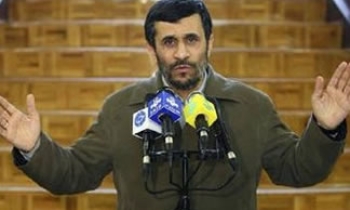Richard Li, son of Asia's richest man Li Ka-shing, has bought a controlling stake in an esteemed Hong Kong newspaper, raising fears among journalists and lawmakers for its editorial independence.
The Hong Kong Economic Journal, first published in 1973, is widely respected for its independent, critical and rational views and has a reputation as a paper of choice for the southern Chinese city's intelligentsia.
Li is taking a 50 percent stake in the newspaper through a trust company he owns. A source close to the deal put the price at between HK$200 and 300 million ($25.7 million-$38.6 million).
The sale follows a year of difficult negotiations with the Journal's owners, including founder Lam Shan-muk, who insisted that retaining the newspaper's editorial independence was a pre-condition for the deal.
Lam's wife, Lok Yau-mui, who is also the paper's publisher, sought to allay fears that the paper might somehow be muzzled.
"We will ensure that the editorial style and independence, which we have built up over all these years, will be rigorously maintained," she said in a press release announcing the deal.
But the Journal's sale has sparked deeper fears among journalists that a unique critical voice might be lost.
"It's the last bastion of the free media in Hong Kong," said Claudia Mo, a political columnist for the paper.
Serenade Woo Lai-wan, chairwoman of the Hong Kong Journalists' Association, expressed fears that the sale could force the paper to appeal to a more popular market.
Independent Stance
"We are very concerned whether it can preserve its editorial independence because in Hong Kong very few newspapers are run by intellectuals," she said. Lam and his wife have regularly written influential columns that helped build the paper's reputation.
"... Its niche was economic news but on political issues and political criticism they were more independent.
Woo added that the paper had not had to worry about criticism from the government or Beijing. "This independence is appreciated by journalists and media bosses alike," she said.
Democratic lawmaker Fred Li said the paper was the latest in a string of media companies to fall under the ownership of tycoons and pro-Beijing figures.
"More big businesses are interested in buying big media. In a broader sense that will jeopardise the independence of the media," he said, pointing out that Li Ka-shing already owned a business radio station. Other TV stations and newspapers were owned by members of Chinese political bodies such as the National People's Congress.
"I'm pretty worried about the newspapers. Many of them are now pro-government and anti-democrats," he said.
In recent years, the Economic Journal has struggled financially, with a circulation of just 30,000 copies at the end of last year. The lack of an heir to take over at the paper has also been cited as a reason for the sale.
Li, a tycoon in his own right, has had a longstanding interest in media companies.
He founded Star TV in the 1990s, turning it into Asia's first satellite broadcasting service. He later sold the stake to Rupert Murdoch's Newscorp for US$950 million.
Li has yet to comment on his plans for the newspaper, although he is expected to take a bigger stake later on.









